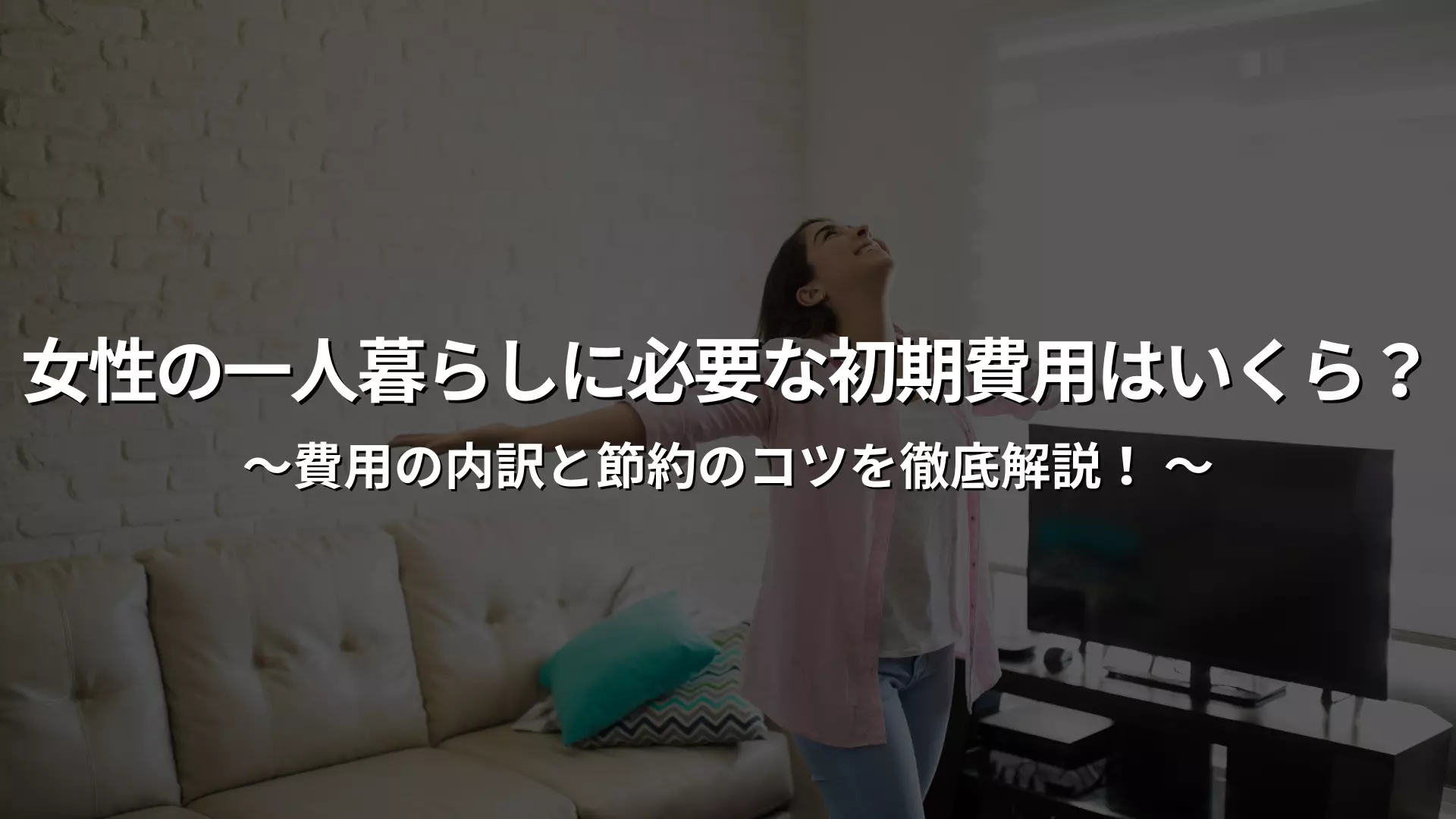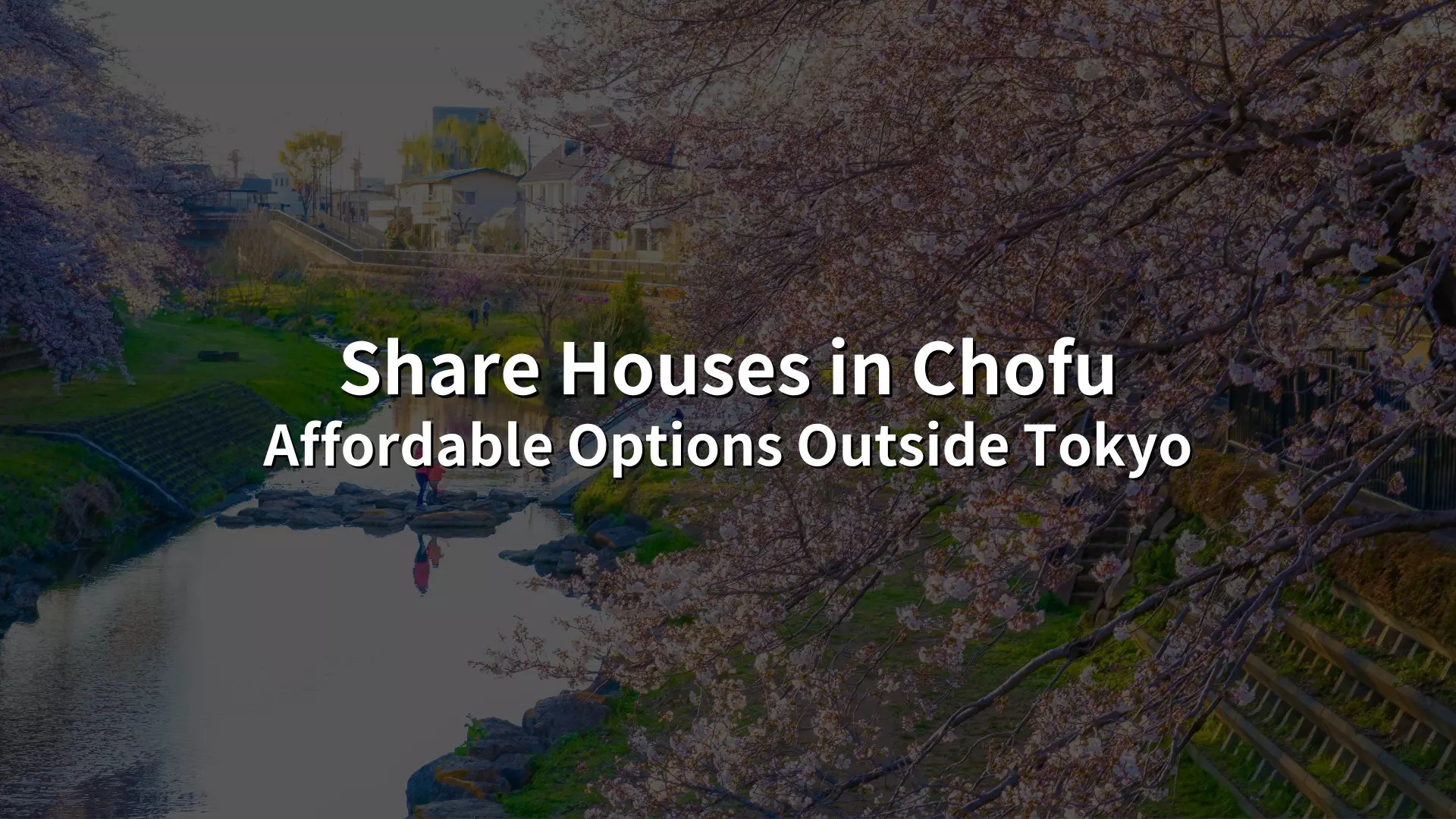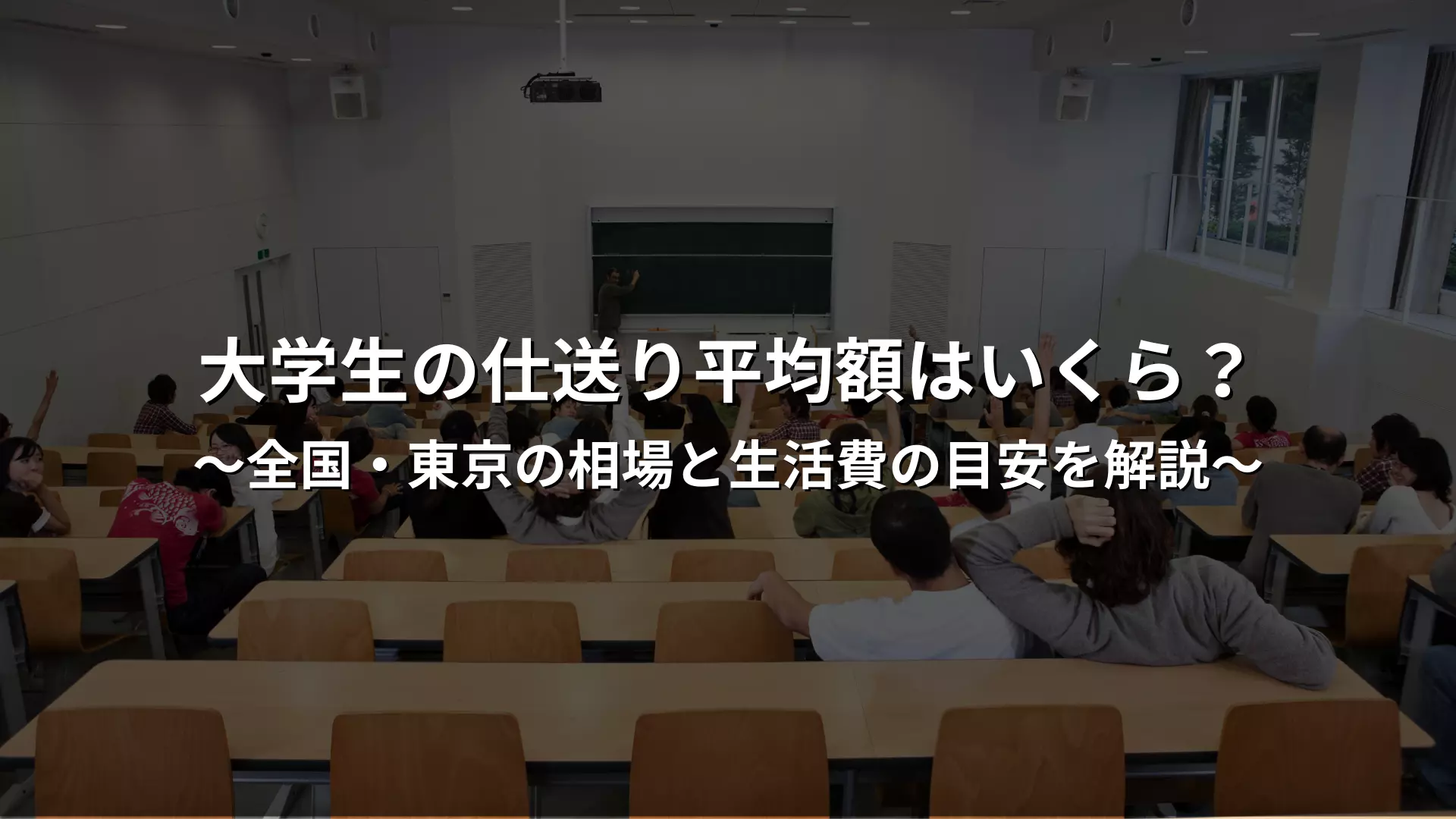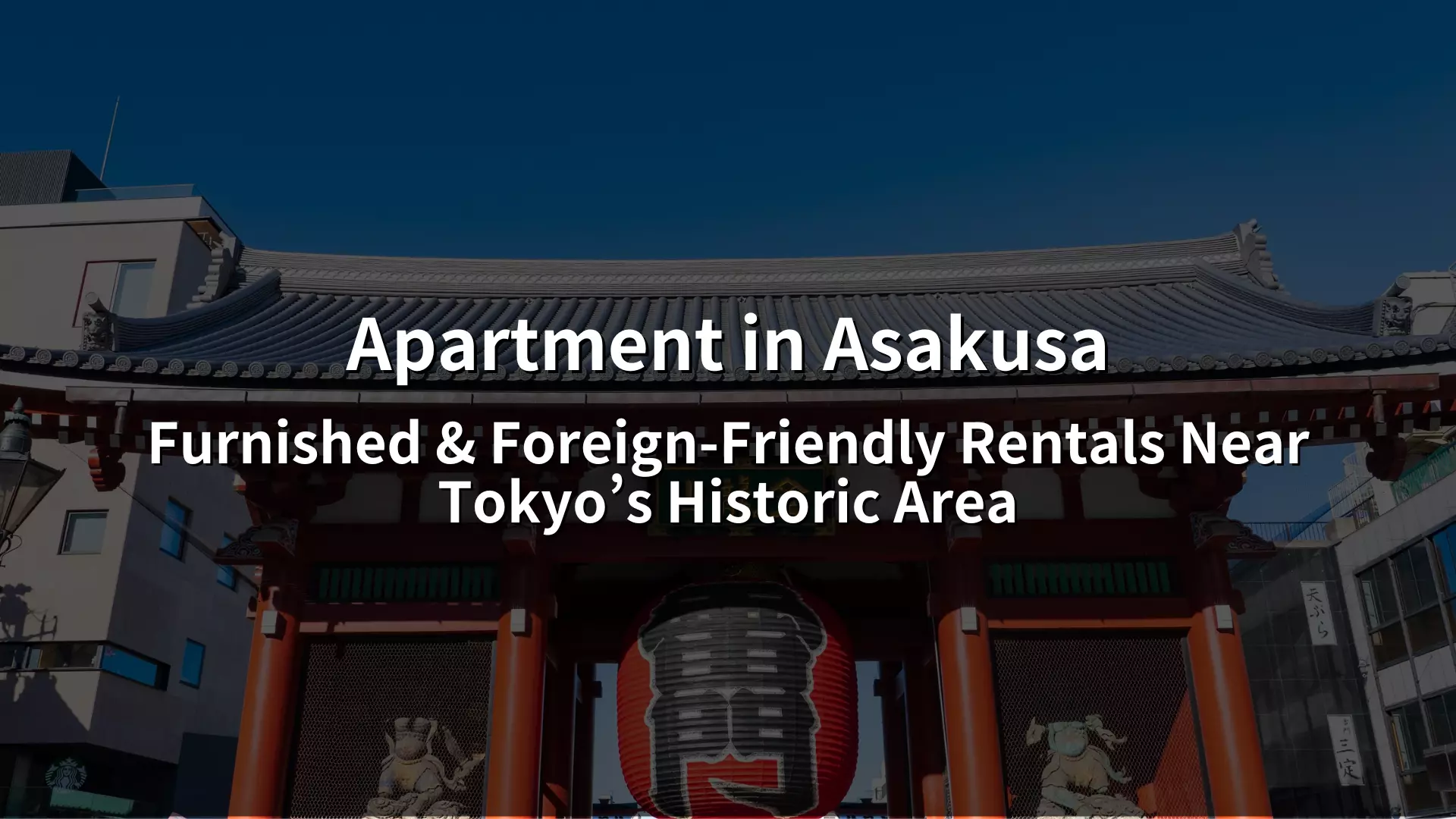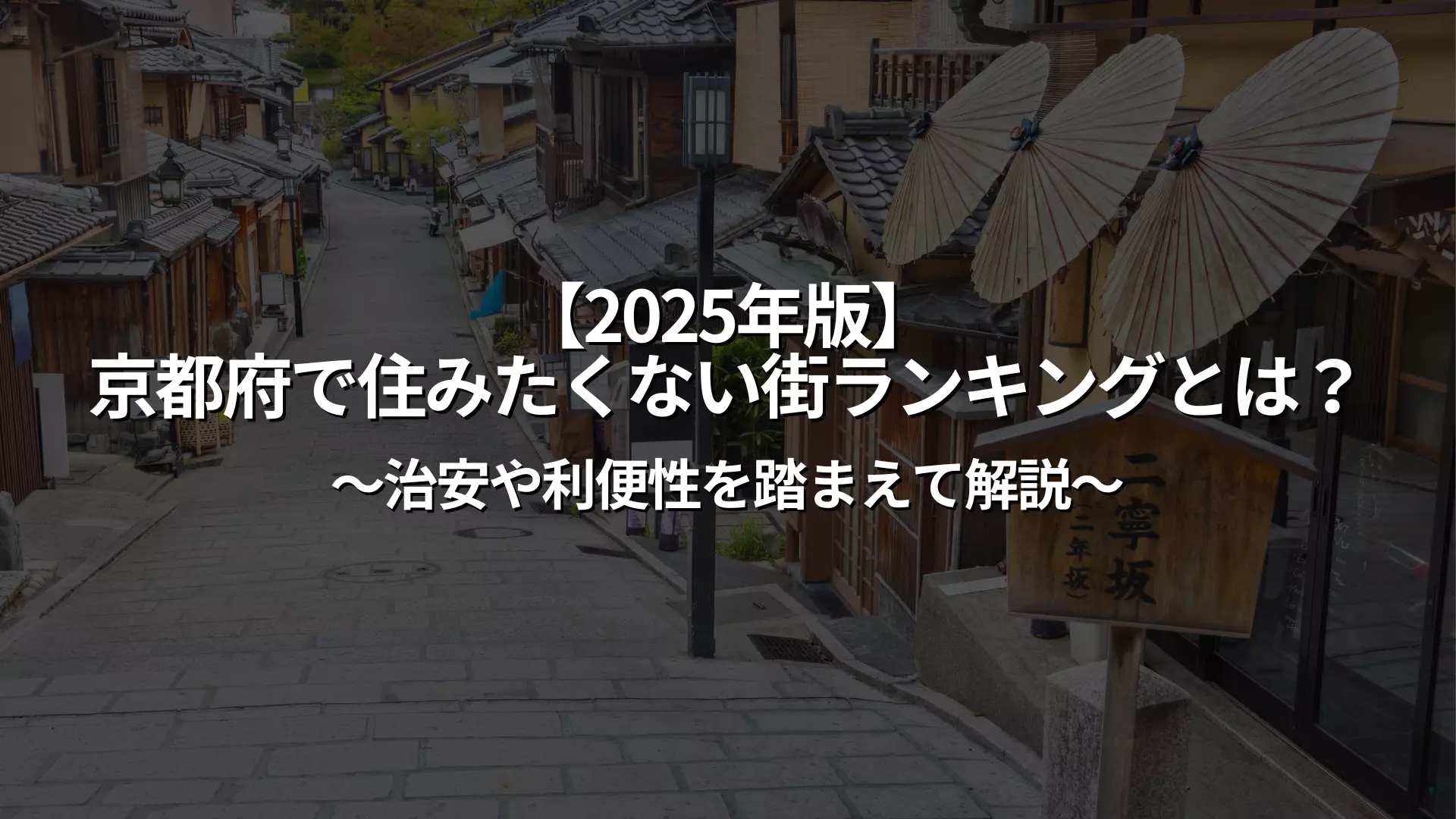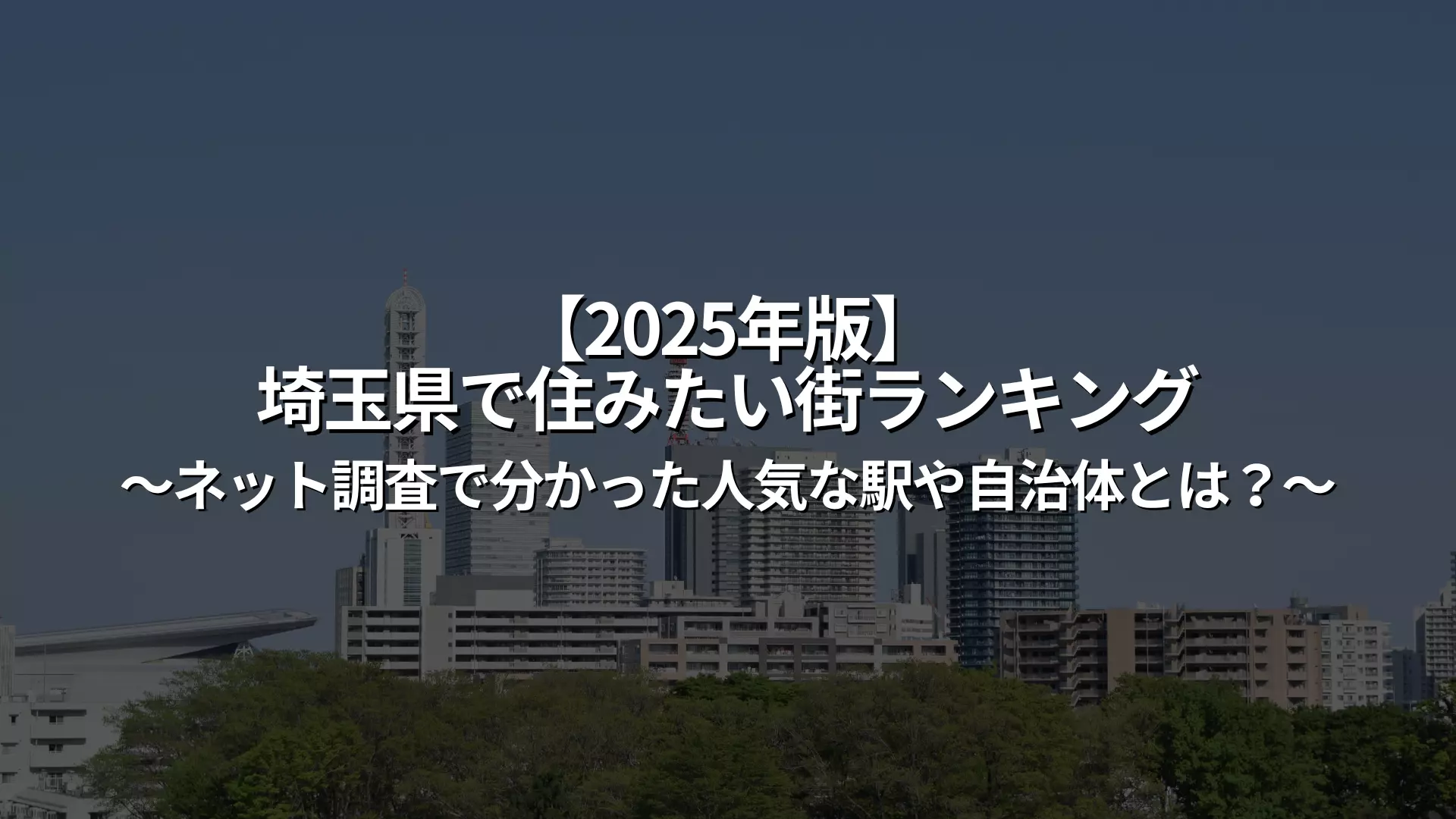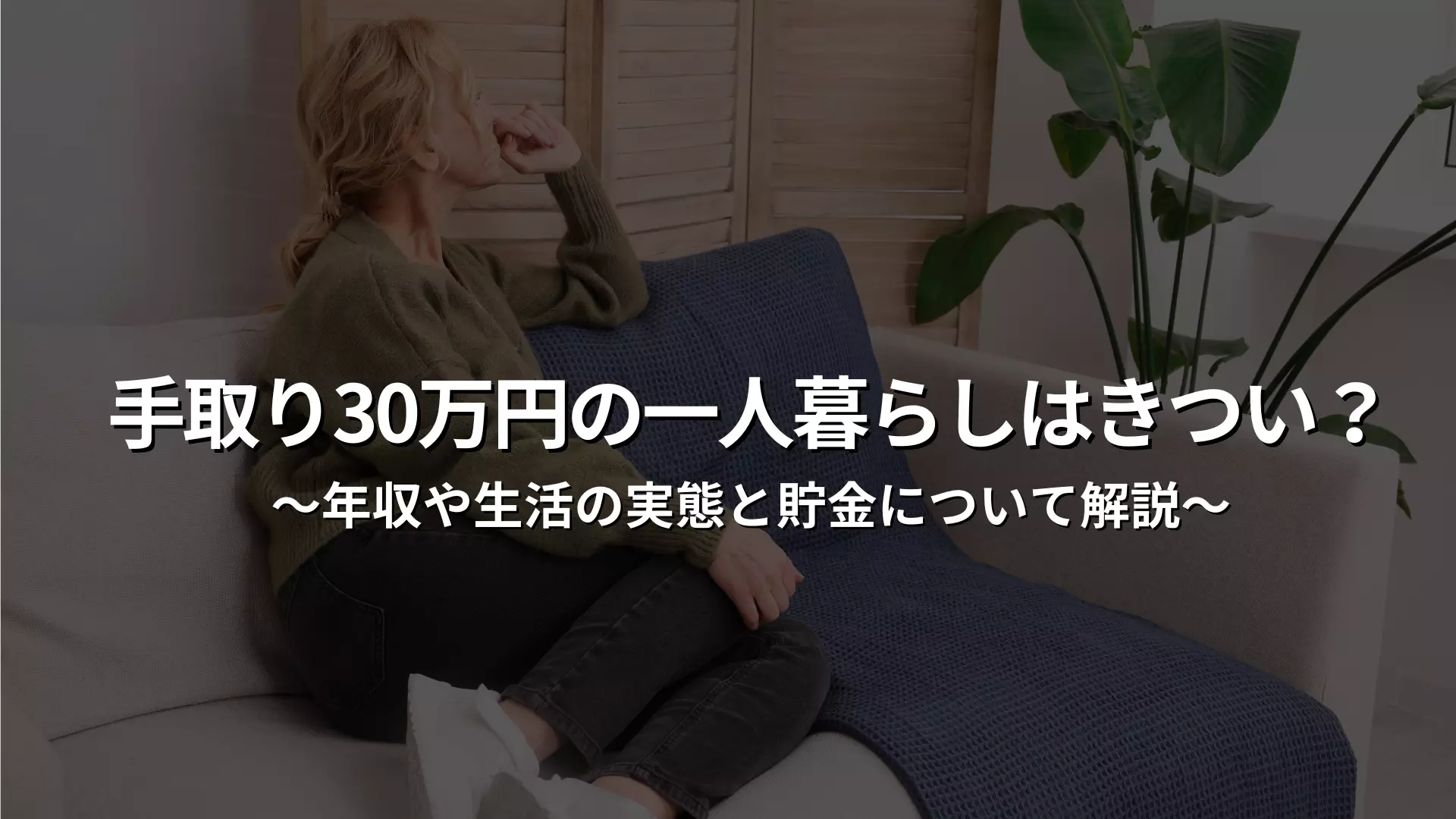What are the initial costs for a woman living alone?
When a woman starts living alone, she will incur a wide range of expenses, including the initial costs of signing a rental contract, moving costs, purchasing furniture and appliances, and crime prevention measures.
The average total initial cost is around 400,000 to 700,000 yen, but it can vary greatly depending on the area you live in, the condition of the property, the timing of the move, etc. Women tend to be more security-conscious, so you will also need to consider security-related costs such as installing a monitor-equipped intercom and an auxiliary lock.
It can sometimes cost more than you expect, so it's important to understand the breakdown in advance and create a budget with some leeway. This article will explain each expense item in detail and help you start living alone without any stress.
What is the average initial cost?
The average initial cost for a woman living alone is generally considered to be around 400,000 to 700,000 yen. This amount includes not only the rent paid in advance, but also contract-related costs such as the security deposit, key money, and agency fees, moving expenses, the cost of purchasing furniture and home appliances, and the installation of security equipment.
For example, if you need to pay 4 to 6 months' rent for a property with a rent of 60,000 yen, the total will be 240,000 to 360,000 yen. If you add moving expenses and the purchase of daily necessities to that, the cost will increase even more.
To avoid going over budget, it is important to make a detailed list of all your necessary expenses and know an approximate amount in advance.
Costs required when signing a rental contract
When signing a lease for a property, various initial costs will be incurred. The main costs are the deposit, key money, and agency fee, which often total four to six months' rent.
A portion of the deposit may be returned to you as a restoration fee when you move out, but the key money and brokerage fee are generally non-refundable.
Therefore, if you want to keep costs down, the key is to look for "zero-zero properties" that have no deposit or key money, or properties with low initial costs. Also, be sure to check the details of the costs before signing the contract, and don't hesitate to contact the real estate company if you have any questions.
Estimated moving costs
The cost of moving varies greatly depending on the distance you move, the amount of luggage, whether you use a moving company, and the time of year you move. For a typical single person move, the average cost is around 30,000 to 100,000 yen.
Prices tend to be higher during the busy seasons of March to April and the New Year holidays, but you can keep costs down by moving during the off-season or on weekdays. If you want to keep costs as low as possible, it's important to get competitive quotes from multiple moving companies and compare the service and warranty details. You can also save money on moving costs by disposing of unnecessary furniture and appliances in advance and reducing the amount of luggage you have.
Purchase costs for furniture and appliances
There are surprisingly many pieces of furniture and appliances required for living alone, and buying everything new would generally cost around 100,000 to 200,000 yen. The ideal way to live alone is to focus on the essentials, such as a bed, refrigerator, washing machine, microwave, and rice cooker, and then add on items you need according to your lifestyle.
If you want to save money, we recommend using second-hand shops, flea market apps, and outlet corners at electronics retailers. Recently, there are many rental services for furniture and appliances, which are especially convenient for those who want to rent for a short period of time or who move frequently.
Rather than buying everything from the start, it's more economical to start with the bare minimum and then add more as you need them.
Don't forget to include security costs
Women living alone should also plan on spending money on crime prevention measures to live safely. A good guideline is to spend around 10,000 to 30,000 yen on things like monitor-equipped intercoms, extra locks, security film, and security alarms. Crime prevention is especially important on the first floor or in areas with few buildings nearby.
If the property does not come equipped with security as standard, consider installing one yourself. It is also effective to make it difficult for people outside to notice that you are living there, such as by using a lockable mailbox cover or choosing the right color for your curtains. In addition to choosing a property with high security, you can achieve a safe life living alone by being conscious of and taking measures yourself.
6 ways to reduce the initial costs of living alone
When you start living alone, you will need a large amount of initial costs, but with some ingenuity, you can significantly reduce your expenses. Especially for women living alone, it is important to ensure safety and get off to a reasonable start in terms of costs.
There are ways to save tens of thousands to hundreds of thousands of yen just by knowing about them, such as choosing a property that doesn't require a deposit or key money, taking advantage of a property with free rent, and reconsidering when you move.
Here are six effective ways to reduce your initial costs:
Search for properties with no deposit or key money
For those who want to significantly reduce the initial costs of living alone, we recommend a property with no deposit or key money, or a so-called "zero-zero property." Normally, a deposit and key money are equivalent to one to two months' rent, so simply not needing these can save you hundreds of thousands of yen.
This is particularly effective for women living alone on a limited budget, as it allows them to start out with less initial costs.
However, there are some points to be aware of when buying a zero-zero property. The cost of restoring the property to its original state when you move out may be expensive, and cleaning fees may be required separately, so be sure to check the details of the contract carefully. It is also important to take into account factors such as the average rent, age of the property, and location, and strike a balance between cost and comfort.
Choose a property with free rent
A property with free rent is one that offers the benefit of free rent for a certain period (about one to two months). Taking advantage of this "free rent period" can save you tens of thousands to hundreds of thousands of yen when you start living alone, when the initial costs can be high.
For example, not having to pay rent during months when you have to spend a lot on furniture and appliances or moving expenses can be a big help to your household finances. However, be aware that free rent often comes with conditions, and that cancellation fees may apply if you cancel during the contract period.
Also, in some cases the rent is set higher than the market price, so it is important to compare it with other properties and make a decision based on the total amount. Before signing a contract, be sure to check the conditions and special clauses and make sure you are satisfied with them before signing.
Aim for the off-season for moving
Moving costs vary greatly depending on the season, with prices rising especially during the new home start season from March to April. On the other hand, moving prices tend to be significantly cheaper during the off-season, such as June to August and November, even for the same distance and amount of luggage.
You can further reduce the cost by choosing a plan that does not specify a weekday or time slot. Since moving companies have different fee structures and services, the key to saving money is to get quotes from multiple companies rather than deciding on one, and compare and negotiate.
Another effective method is to carry the belongings you can carry yourself and ask a moving company to carry only your furniture. Choosing the moving date will affect not only the cost but also the smooth start of your new life, so it is important to plan your schedule with plenty of time.
Shared houses are also an option
For those who want to start living alone while keeping initial costs down significantly, a shared house is a good option. Many shared houses come equipped with furniture and appliances, and many properties do not require a deposit or key money. This means you can start living there immediately from the day you move in, and it is possible to keep initial costs down to less than 100,000 yen.
In addition, utilities and internet fees are often included in the rent, making monthly fixed costs clear and easy to manage. Recently, there has been an increase in women-only share houses and share houses with excellent security, providing a safe environment in terms of crime prevention. While it is easy to interact with others, private space is limited, so consider in advance whether it is a style that suits you.
Consider buying second-hand or renting furniture and appliances
If you live alone and buy all your furniture and appliances new, it can cost you over 100,000 yen. That's why we recommend using second-hand goods and rental services. At second-hand shops and flea market apps, you can sometimes get good quality appliances for less than half the retail price, which can help you cut your budget significantly.
In addition, rental services allow you to use the equipment for only the period you need, making them convenient for people who are staying for a short period of time or who may be transferred. For example, there are plans that allow you to rent a set that includes a washing machine, refrigerator, and microwave for just a few thousand yen per month, allowing you to live comfortably while keeping the burden of initial costs down.
By making good use of second-hand and rental options, you can start your life smart and saving money.
Search for a room
Only furnished properties with appliances are listed!
Estimated living expenses for single people
When living alone, not only do you have to pay initial costs, but you also have to pay monthly living expenses. In particular, it is important to know how much your living expenses will be compared to your income in order to maintain a comfortable lifestyle. In addition to fixed expenses such as rent, utilities, and communication fees, you also need to consider variable expenses such as food and daily necessities.
It is also important to balance living expenses according to income. Here, we will explain in detail the reality of the living expenses required for a woman living alone, based on an estimate of actual living expenses and a simulation example.
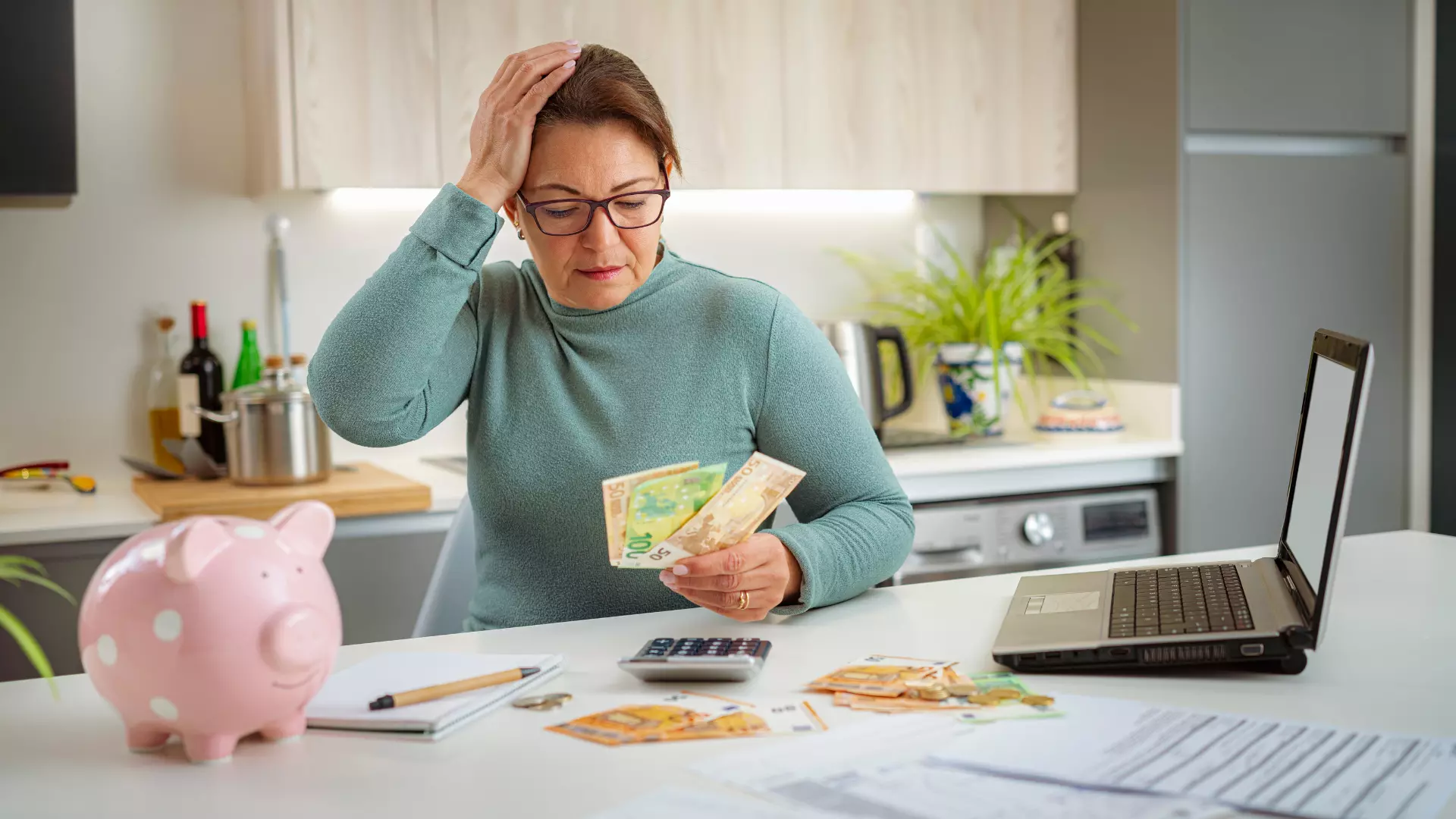
Monthly fixed costs (rent, utilities, communication fees, etc.)
When living alone, fixed expenses occur every month and are the foundation of household management. The main items are rent, electricity, gas, water, and communication fees for smartphones and Wi-Fi.
It is recommended that rent be kept within 30% of your take-home pay. For example, if your take-home pay is 150,000 yen, your rent should be around 40,000 to 50,000 yen. Utility bills vary by season, and in summer and winter, the cost of air conditioning and heating can be more than 10,000 yen per month.
If you use a major carrier, your monthly communication costs will be around 7,000 yen, but if you use a low-cost SIM card, you can keep them to under 3,000 yen. Since these fixed costs occur every month, it is important to consider them as "expenses that are unlikely to change" in your budget and create a reasonable household budget.
Variable expenses such as food and daily necessities
The "variable expenses" such as food and daily necessities are easy to adjust for a single person's household budget. Food expenses in particular are easily linked to lifestyle, and if you cook mostly at home, you can keep it to 15,000 to 25,000 yen a month, but if you eat out and use convenience stores a lot, it can exceed 30,000 to 40,000 yen.
The key to saving money is to buy in bulk, prepare food in advance, and take advantage of special sales at supermarkets. Daily necessities such as toilet paper and detergent cost between 3,000 and 5,000 yen per month.
Other expenses that fall into this category include entertainment expenses, medical expenses, beauty expenses, and hobby and subscription expenses, so take a look at your lifestyle and set a reasonable budget. Variable expenses can be tightened overall by consciously controlling them.
Average living expenses and actual simulation example
The average cost of living for a single person is said to be around 130,000 to 160,000 yen per month, so it is important to maintain a balance that matches your income.
- If your take-home pay is 150,000 yen
The guideline is 50,000 yen for rent, 20,000 yen for food, 10,000 yen for utilities, 5,000 yen for communication fees, and 65,000 yen for other miscellaneous expenses. In this case, it is somewhat difficult to save money or prepare for unexpected expenses, so you will need to be thrifty.
- If your take-home pay is 180,000 yen
Even when you add up rent of 60,000 yen, food costs of 25,000 yen, utility bills, and communication costs, you will still have money left over for savings and hobbies.
When planning your living expenses, it is important to divide your monthly expenses into four categories: rent, fixed expenses, variable expenses, and savings. By creating a realistic household budget based on your income, you can achieve a stable life on your own.
Money saving tips to live comfortably while keeping costs down
When living alone, saving money is essential to live comfortably on a limited income. It's not just about saving money, it's important to find ways to do it comfortably and without lowering your quality of life. By reviewing your daily food, utility, and communication expenses, and by organizing your money management, you can reduce unnecessary spending and live a secure life.
Here we will introduce four practical money-saving tips that will be useful for women living alone.
Save money on food by cooking at home and being creative with your shopping
Cooking at home is one of the most effective ways to save on food costs.
While eating out can cost 1,000 yen per meal, cooking at home can provide a nutritionally balanced diet for just a few hundred yen. Buy in bulk once or twice a week, freeze meat and vegetables, and prepare food in advance to reduce the effort of cooking and make it easier to continue. Another key point is to be creative with your shopping, such as finding cheap supermarkets, using apps that allow you to accumulate points, and taking advantage of sale days and coupons.
Convenience stores are convenient but tend to be expensive, so limit your use to the bare minimum. By combining cashless payment and point rewards, you can save money on your daily shopping. By making cooking at home a habit and reviewing your shopping habits, you can save more than 10,000 yen a month.
Reduce utility bills by taking seasonal measures
Utility bills are an expense that tend to skyrocket, especially in summer and winter, due to the use of air conditioners and heating appliances. In summer, keeping the air conditioner set at 28°C and using a fan in conjunction with it will increase cooling efficiency and reduce electricity bills. In winter, you can reduce the frequency of heating use by dressing warmly and using electric blankets, hot water bottles, and insulated curtains.
You may also be able to reduce your basic fee by switching to a combined electricity and gas contract. Regularly reviewing the rate plans and campaigns of each energy company can also lead to savings. Furthermore, small, gradual changes such as cutting standby power for unnecessary home appliances and switching to LED lighting can be effective in reducing your monthly utility bills.
Switch to a low-cost SIM card for communication costs
Communication costs are also one of the fixed costs that can be easily reduced. If you are using a major carrier, your smartphone bill alone can cost around 8,000 yen per month, but if you switch to a low-cost SIM, you can keep it down to around 2,000 to 3,000 yen per month.
There is a wide range of options for low-cost SIM cards, including unlimited calling plans for people who make a lot of calls and plans for people who prioritize data communication, so by choosing the one that suits your usage, you can avoid waste.
Recently, communication speeds and coverage have improved, making it possible to use the service without stress. By using a SIM-free device, you can enjoy greater freedom and further reduce costs. The process of switching carriers is not as complicated as you might think, so consider it as the first step to start saving money.
How to save money in advance and use a household account book
For those who are not good at saving, we recommend "saving in advance." When you get your salary, transfer a certain amount to a savings account first, and then live off the remaining money. This will naturally increase your savings. If you want to continue without straining yourself, we recommend starting with about 5,000 to 10,000 yen per month.
Furthermore, if you use a household accounting app, you can automatically record your daily expenses and see at a glance what you are spending your money on. By visualizing your expenses with graphs and categories, it becomes easier to notice wasteful spending and increase your awareness of saving money. Recently, there are many convenient apps that have receipt reading functions and can be linked to credit cards and electronic money, so use the tool that suits you and get into the habit of managing your money in an enjoyable way.
Search for a room
Only furnished properties with appliances are listed!
Key points for choosing a property to live comfortably
When choosing a property for a woman living alone, it is important to prioritize safety as well as rent and layout. By carefully checking the security facilities, location, and surrounding environment in advance, you can live a safe and comfortable life.
In addition, when you actually view the property, it is important to check the small details that cannot be found in photos and information alone. Here, we will explain in detail the points to keep in mind when choosing a property so that women can live in peace of mind.
Security Equipment
For women living alone, it is extremely important to have a good level of security facilities to live safely. Properties equipped with autolocks, monitor-equipped intercoms, and security cameras are considered to have high crime prevention capabilities, as they are more likely to prevent intruders from entering from the outside. Monitor-equipped intercoms in particular allow you to see the faces of visitors, so you can feel safe even when you are at home.
Also, since there is a high risk of intrusion into rooms on the first floor, it is safer to choose a room on the second floor or higher. Make sure to check whether there are security cameras in the common areas and whether the entrance and hallways are well lit.
It is essential to check on-site whether the property is safe to return home to even at night. A property with good security measures will reduce small everyday anxieties and support a comfortable life living alone.
Location and surrounding environment
The location of the property and the surrounding environment are also essential factors in ensuring safety. Properties close to the station are convenient for commuting to work or school, but you should also make sure that the roads are well lit at night and there are people around. Roads with few street lights or residential areas with no people around may make you feel uneasy when returning home at night.
In addition, having convenience stores, supermarkets, drugstores and other amenities within walking distance will give you peace of mind in case of sudden shopping at night or in the event of an emergency. Living in an area with a police box nearby is also a reassuring point in terms of crime prevention.
Furthermore, even if you live in a quiet residential area, if there are restaurants or busy shopping districts nearby, there is a risk of noise and trouble late at night, so it is a good idea to check the surrounding atmosphere both during the day and at night.
Points to check when viewing the property
When actually viewing a property, it is important to check even the small details that cannot be seen in photos or floor plans.
First, check the level of security measures, such as whether the front door and windows are securely locked, whether there are auxiliary locks or burglarproof locks, etc. A layout that does not allow the inside of the room to be seen when you open the front door is also reassuring in terms of security and privacy.
Also, check the thickness of the walls and the structure of the windows to see if it is difficult to hear outside sounds and voices from the next room. In the common areas, the cleanliness of the trash area, the lighting on the stairs and corridors, etc., and how well they are maintained will directly affect how comfortable the apartment is to live in.
When viewing the property, take photos with your smartphone. These will be useful when you want to compare it with other properties later. Be sure to check every detail carefully and choose a property that you are satisfied with.
summary
To start living alone, a woman needs to spend an average of 400,000 to 700,000 yen in initial costs, including rental contract fees, moving costs, furniture, home appliances, and crime prevention measures.
However, it is possible to significantly reduce expenses by choosing a property with no deposit or key money, a property with free rent, or by planning your move-in time. Even after you start living in your new home, you can manage your household finances reasonably by reviewing your fixed and variable expenses, cooking your own meals, using low-cost SIM cards, and saving money in advance.
In addition, choosing a property that prioritizes crime prevention and location will be the foundation for a safe and comfortable life. Consider the balance between cost and peace of mind and find a home and lifestyle that suits you.

